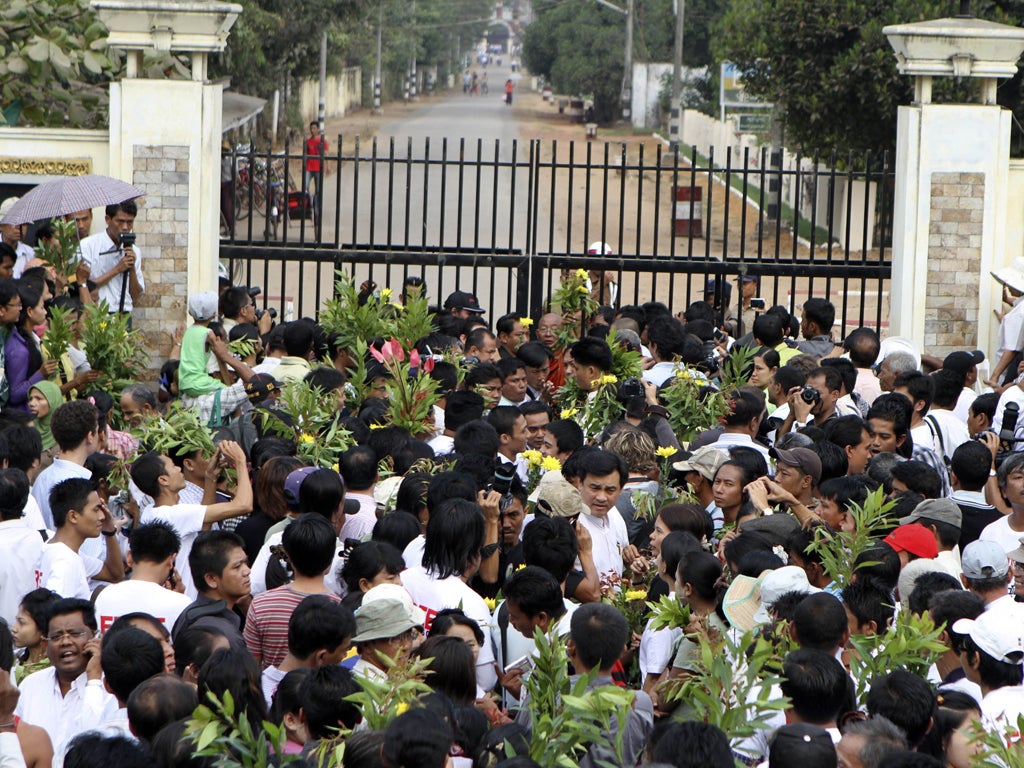Peter Popham: Remarkable events that give hope for change after so long


Your support helps us to tell the story
From reproductive rights to climate change to Big Tech, The Independent is on the ground when the story is developing. Whether it's investigating the financials of Elon Musk's pro-Trump PAC or producing our latest documentary, 'The A Word', which shines a light on the American women fighting for reproductive rights, we know how important it is to parse out the facts from the messaging.
At such a critical moment in US history, we need reporters on the ground. Your donation allows us to keep sending journalists to speak to both sides of the story.
The Independent is trusted by Americans across the entire political spectrum. And unlike many other quality news outlets, we choose not to lock Americans out of our reporting and analysis with paywalls. We believe quality journalism should be available to everyone, paid for by those who can afford it.
Your support makes all the difference.There can no longer be any doubt that there is a group of people at the summit of power in Burma who are not merely toying with Aung San Suu Kyi and the West, not merely climbing through Washington-erected hoops in order to achieve short-term political and economic goals, but who have a vision of how their country should be run and where it should be heading that is radically at odds with the vision that has dictated policy for the past 20 years.
This is the only conclusion that can be drawn from the breathtaking events of the past two days. The year began with disappointment when only a handful of political prisoners was released in the traditional holiday amnesty.
But that returning sense of suspicion and doubt was blown away by two major breakthroughs: the signing of a formal ceasefire with the Karen National Union, after more than 60 years of brutal and horrifying civil war; and the claimed release – the details have yet to be spelled out – of all the remaining 500-plus political prisoners.
It is hard to say which of these two developments is the more stunning. When I first visited Burma in 1991 I was taken by activists of the Karen minority across the Thai border to Manerplaw, a camp in the jungle on Burma's eastern border. The National Coalition Government of the Union of Burma had set up its base there after the refusal of the military junta to recognise the results of 1990's election, in which Ms Suu Kyi's National League for Democracy won a landslide victory. They were made welcome by the Karen National Union and its army, which at that point had already been fighting the Burmese military for 40 years.
This, in other words, is a conflict with the deepest of roots. During the Second World War the predominantly Christian Karen had remained loyal to the British while the Buddhist Burmese sided with the invading Japanese. "How could anyone expect the Karen to trust the Burmans after what happened in the war?" one Karen leader remarked in 1985. Yet this week a senior Karen soldier commented: "This time they didn't ask us to give up our arms. They just want to work for equal rights for ethnic groups. This time we trust them." It is a historic moment.
No less important is the release of the men and women who must haunt the nightmares of the former strongman Than Shwe, many of them at the sharp end of civil protests from 1988 to 2007.
What on earth, one wonders, can President Thein Sein do for an encore?
Join our commenting forum
Join thought-provoking conversations, follow other Independent readers and see their replies
Comments